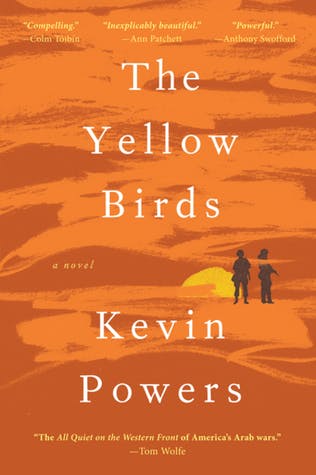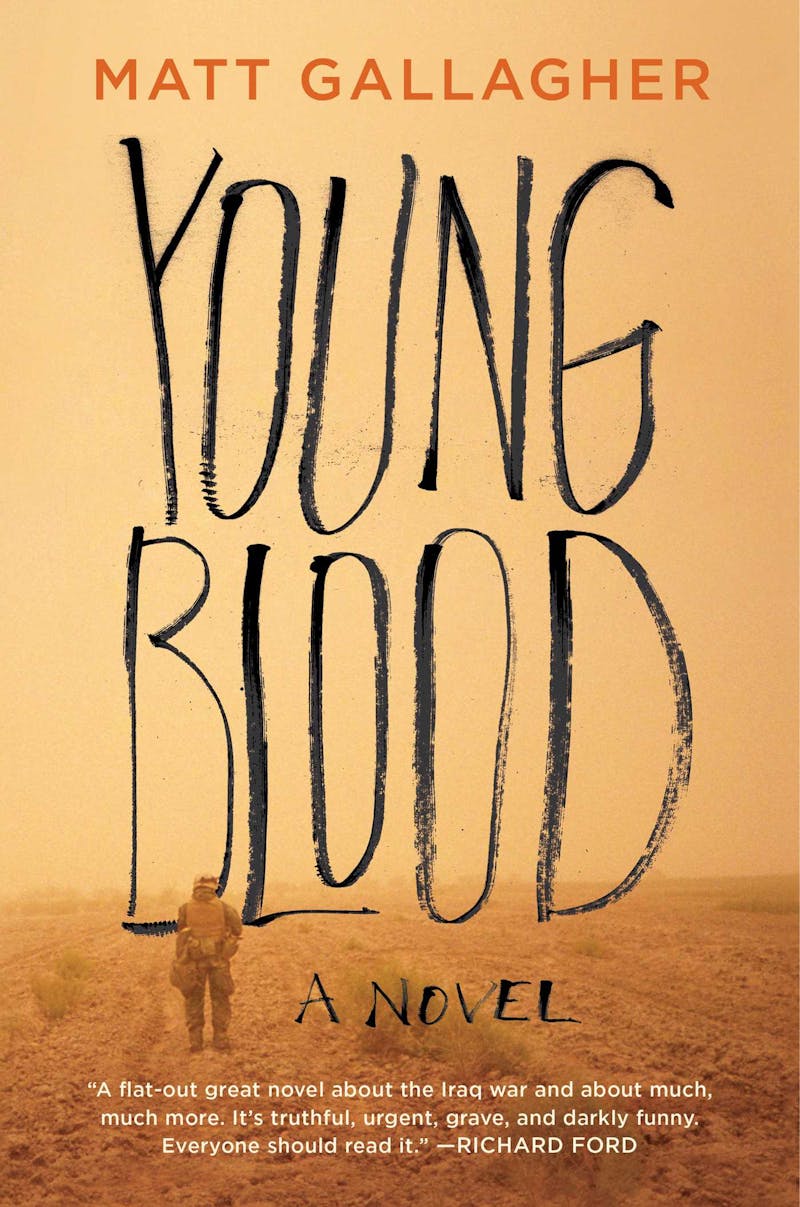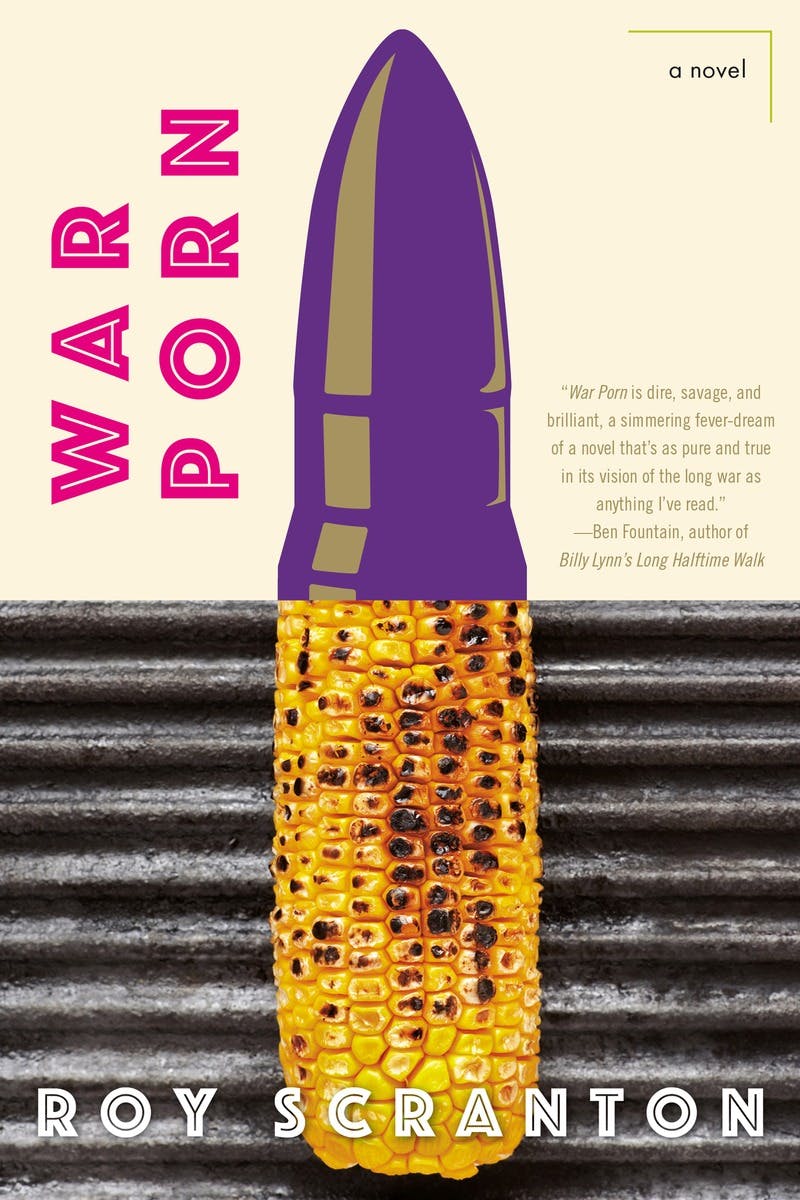Thirteen years have passed since Roy Scranton was deployed to Iraq as an enlisted artilleryman in the U.S. Army. He’s since co-edited Fire and Forget, a collection of short stories about Iraq and Afghanistan and written a non-fiction book about facing the threat of climate change, Learning to Die in the Anthropocene. Now teaching creative writing at the University of Notre Dame, Scranton has criticized the ways that many veterans talk about Iraq and Afghanistan. Earlier this summer he tweeted, “You know what would be awesome? More veterans whining about how nobody understands the moral complexity of being an imperial stormtrooper.”
He has a point: The last five years has seen a steady trickle of Iraq and Afghanistan novels (and many memoirs allegedly so full of holes that they may as well be considered fiction). Many of the books have won acclaim, and deservedly so, but almost all of them have suffered from the limitations of first-wave war fiction, works still close to the conflicts and more raw than they are reflective. As a genre, they tend to be obsessed with telling readers that war is awful, our post-9/11 conflicts were quagmires, but all our veterans were just good guys doing the best they could with a bad situation.
Rather than offering stories specific to America’s recent conflicts, these books wind up telling traditional war stories that are at odds with what most veterans experienced serving in places like Baghdad or Jalalabad. Iraq and Afghanistan rarely offered quintessential Hemingwayesque struggles for masculinity. In his recent non-fiction book Tribe, Sebastian Junger points out that only 10 percent of today’s veterans experienced actual combat and yet 50 percent of them have applied for permanent disability due to PTSD. No other war in recent memory has left service members traumatized in these numbers and yet post-9/11 veterans endured just a third the casualties of those who served in Vietnam. Troops in Vietnam suffered a quarter of the mortality rate of those who fought in World War II.
The global war on terror is vastly different and mercifully less violent than those that came before it and yet this distinction is anything but apparent in most of the fiction published about it so far. These visceral narratives are seemingly unmoored in time and place and tend to function as generic war stories about heroes making difficult choices in the face of great adversity. The central tension of Kevin Powers’s novel The Yellow Birds is the protagonist’s pledge to a fellow soldier’s mother that he will keep her son safe in Iraq. Amid the brutality and chaos of combat, the narrator does not succeed and commits a war crime to hide the extent of his failure. And yet, the book is written in such a way that relies on readers to feel more empathy for the narrator, an American infantryman, than an Iraqi man who is murdered while the soldier tries to cover his tracks.


The unwillingness of most veterans’ fiction to cast soldiers in an unsympathetic light—even when they commit war crimes—is one of the most striking elements of the genre. In Matt Gallagher’s Youngblood, a fresh-faced American lieutenant clashes with a salty staff sergeant on his fourth deployment. The enlisted soldier is aggressive with Iraqis and has a reputation for killing unarmed civilians and placing weapons to them after the fact to avoid criminal charges. As the story unfolds, the veteran’s apparent callousness is cast as a sort of wisdom and his brutality excused as a byproduct of serving so many combat tours. In books like The Yellow Birds or Youngblood, it’s sad when Iraqis die but the real victims are always the American soldiers forced to pull the trigger in a confusing, needless war. Aside from military translators, Iraqis and Afghans seem to exist in these fictional worlds largely as people to be killed so American soldiers can learn about war, life and death.
It’s hard not to see these problems as a consequence of a thank-you-for-service culture that has arisen in America as civilians over-correct for how the country treated those returning from Vietnam. We are comfortable questioning a war but almost never the soldiers who fight it. Take, for example, the mood in 2011 when America ended its war in Iraq and President Barack Obama announced the beginning of troop withdrawals in Afghanistan and plans to conclude combat operations there in 2014. At that moment, 57 percent of Americans said Iraq had not been worth fighting and 52 percent said the same of Afghanistan. Only 36 percent approved of Iraq and 41 percent of Afghanistan. And yet, the same survey by the Pew Research Center found that 91 percent of Americans felt proud of those serving in the military and 76 percent said they’d thanked a service member. In other words, up to about a third of Americans thanked members of the military for volunteering to fight wars that they opposed.
Not
surprisingly, the villain in Iraq and Afghanistan fiction tends to be
geopolitics, leaving those in the trenches with little to no agency. These
messy insurgencies either anoint soldiers as troubled heroes or martyrs,
morally compromised and sacrificed at the altar of misguided wars. That’s not
to say these books are poorly executed. Phil Klay’s Redeployment is rightfully considered a masterpiece that
compellingly engages these issues but even this short story collection feels confined
in places by the moment in which it was created.
Scranton’s debut novel War Porn is at the forefront of what will inevitably be a second wave of books to emerge from post-9/11 wars, as veterans get more distance from them. Consider that the canonical works from other conflicts didn’t appear until decades after leaders signed peace treaties. It would take Joseph Heller 16 years after World War II ended to publish Catch-22 and Kurt Vonnegut 27 years to come out with Slaughterhouse-Five. Books printed either during the war or immediately after it were more likely to be traditional tales of heroism, bravery and survival like Pierre Boulle’s The Bridge over the River Kwai (1952) or other titles modern readers are unlikely to have heard of.

War Porn offers a view of the American military unlike anything else written about Iraq or Afghanistan. Scranton traces the lives of liberals at a barbecue in Utah, an American soldier deployed to Baghdad, and an Iraqi mathematician on the eve of the invasion, exploring how the war causes all their lives to intersect.
Although Private Wilson, the soldier protagonist, experiences combat, fighting is peripheral to the story. Instead, Scranton chooses to focus on the struggle for humanity that comes in quiet moments. Early on we see a group of male grunts sexually harass three female soldiers as they try to change in private. Rather than creating a character who intervenes on their behalf or a narrator who expresses remorse, Scranton lets the scene unfold without commentary or apology. (It’s worth noting that statistically speaking, service members are about as likely to have sexually harassed a fellow soldier as they are to have fired a weapon at an enemy. Only 10 percent of veterans experienced combat whereas 8.85 percent of all active duty troops reported experiencing sexual harassment in the past year. Women deployed in Iraq and Afghanistan reported that the problem was even worse downrange.)
Throughout the novel, Scranton resists the temptation to deliver a redemptive or sympathetic moment for soldiers who misbehave or suffer humiliation. Soldiers in his book are normal humans capable of equal parts goodness and cruelty. If The Yellow Birds is the backstory we invent that compels us to thank a soldier, War Porn is the unspoken reality that might make some veterans uncomfortable accepting our unsolicited gratitude.
The portion of War Porn devoted to Qasim, an Iraqi professor, allows Scranton to look at the American invasion from the outside, revealing the terror the war often inflicted on civilians. At times it’s distractingly apparent that Scranton, a white man from Oregon, is writing from the perspective of an Iraqi—yes, Arabs have a rich tradition of proverbs and poetry but at times Scranton’s Iraqi characters seem unable to speak without using a parable or sharing sage bits of wisdom. But Qasim’s story is critical to the book’s universe and delivers a crushing payout in the end. Through the professor we’re also introduced to an array of complex Iraqi characters, shifting our reflexive sympathies away from American soldiers as we see them through the eyes of the occupied.
In War Porn, Scranton has found a way for America to move beyond the hero cult we’ve built around our military. Without any moralizing, he offers an undeniably courageous book that depicts war as a corrosive force that corrupts everyone it touches. The book offers a guided meditation on Iraq certain to force long overdue introspection on how we think about the war, those who fought it, and the Americans and Iraqis it affected. Though War Porn doesn’t set out to change anyone’s mind, it’s impossible to read it without reconsidering how you think about Iraq and our treatment of those who served.
